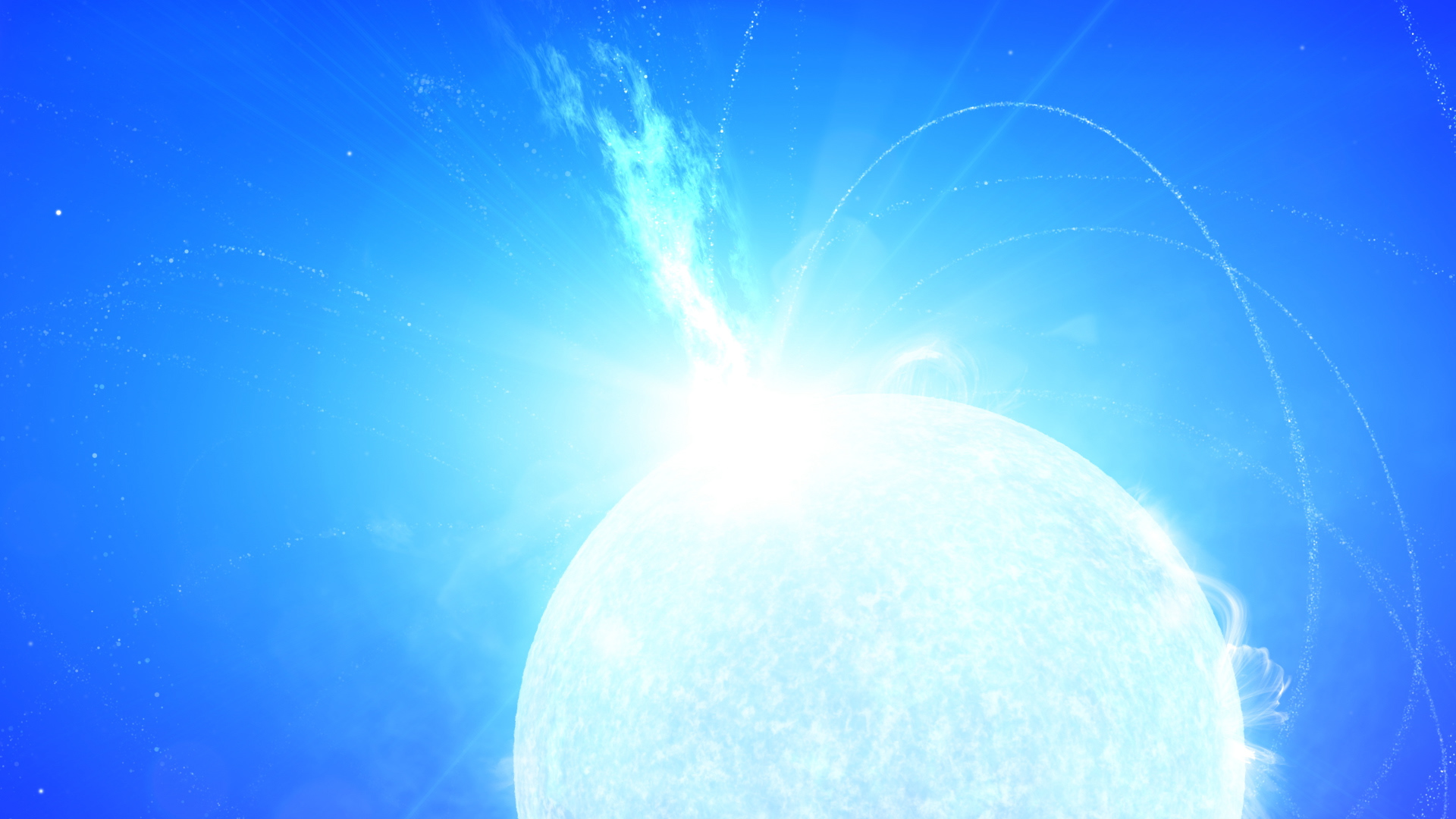Soft Gamma-Ray Repeater Light Echoes Captured by Swift Satellite
The X-Ray Telescope (XRT) aboard NASA's Swift satellite captured light echoes from a soft-gamma-ray repeater. These stellar remnants, which are thought to be highly magnetized neutron stars called magnetars, occasionally belt out a series of X- and gamma-ray flares. On Jan. 22, 2009, an object known as SGR J1550-5418 began its second and most intense round of outbursts since October 2008. In the following days, Swift's XRT captured what appears to be an expanding halo as X-rays from the brightest bursts scatter off of intervening dust. Multiple rings form as the X-rays interact with different dust clouds. Closer clouds produce larger rings. Both the rings and their apparent expansion are an effect of light's finite speed and the longer path the scattered light must travel. They will be studied to make a more reliable measurement of the distance to the source and to the dust clouds.
Animation of X-ray halo from the flaring neutron star SGR J1550-5418 without overlays.
Credit: NASA/Swift/Jules Halpern, Columbia Univ.
Animation of X-ray halo from the flaring neutron star SGR J1550-5418 with date overlays.
Credit: NASA/Swift/Jules Halpern, Columbia Univ.
For More Information
Credits
Please give credit for this item to:
NASA/Swift/Jules Halpern (Columbia Univ.)
-
Producer
- Stefanie Misztal (UMBC)
-
Writer
- Francis Reddy (SPSYS)
Release date
This page was originally published on Tuesday, February 10, 2009.
This page was last updated on Wednesday, May 3, 2023 at 1:54 PM EDT.
Missions
This page is related to the following missions:Series
This page can be found in the following series:Datasets used
-
[Swift]
ID: 217
Note: While we identify the data sets used on this page, we do not store any further details, nor the data sets themselves on our site.

